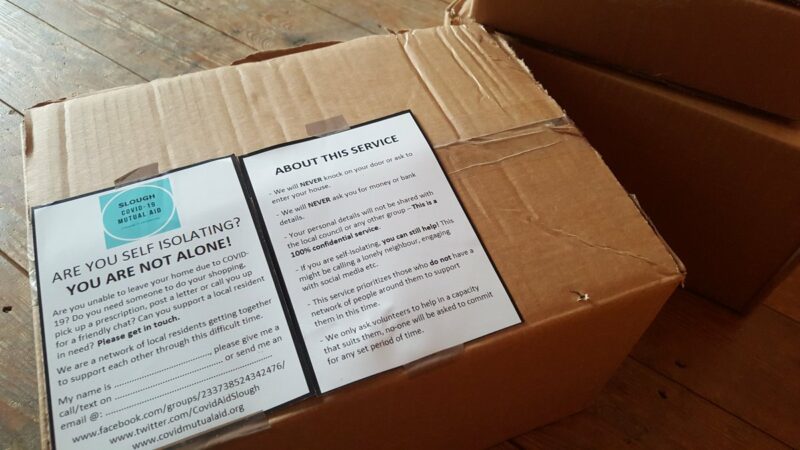Let's use this experience to build a closer-knit society, writes Omar Salem.

People have been warning for years about the growing holes in the welfare state’s safety net. Whether it has been in relation to zero hours contracts, cuts to benefits, lack of protections for the self-employed or the lack of affordable housing, these warnings have largely gone unheeded.
The coronavirus crisis has now thrown into sharp relief how fragile many people’s existence is. Many workers are living pay cheque to pay cheque, while those out of work struggle on meagre benefits. Benefits sometimes do not arrive at all, with the threat of sanctions constantly hanging over recipients’ heads. Many of the elderly are not getting the help they need due to the crisis in the social care system and the NHS has been underfunded for a decade as a result of austerity.
There are getting on for a million people on zero hours contracts and 5 million people who are self-employed, while statutory sick pay is only £94.25. In 2017, for the first time since 1988, UK households spent more than their income. As household savings are at historically low levels, the gap was filled through borrowing.
Many people do not have reliable work or savings to fall back on in times of difficulty. As a result, they suffer from both legal and economic precariousness.
Yet, with the arrival of coronavirus, suddenly a benefits regime that was constantly portrayed by parts of the media and the Conservative Party as overly generous, is now considered, at least in some respects, stingy. Government support has been put in place to prevent layoffs and universal credit has been increased with the snap of the Chancellor’s fingers. Additional support for the self-employed is also expected while hotel rooms have been provided for rough sleepers.
The extra help for people is of course welcome – but it raises the question of why it was previously thought acceptable for people to live on lower levels of universal credit or sleep rough. Once the coronavirus crisis is over, will benefits be cut again and rough sleepers thrown back on to the street? There seems to be little acceptance from the government of the contradictions resulting from their new policies, welcome though many of these changes are.
Rahm Emanuel, President Obama’s former chief of staff, said during the last financial crisis: “You never want a serious crisis to go to waste. And what I mean by that is an opportunity to do things that you think you could not do before.” A crisis is often opportunity to reappraise how things are done and take a fresh approach.
Just as the welfare state was built after the Second World War, driven by the experience of the country working together during the war, we can use this crisis to build a society in which we do a better job of taking care of each other. Human beings are social animals. While coronavirus may be physically separating us, we are going through a collective experience that could strengthen society.
Let us hope that in response to coronavirus we can build a permanently kinder society. This is already happening. Retired doctors and nurses are returning to the workforce to help the NHS, people are checking on their elderly neighbours and new community groups are springing up. There is a role for the state in supporting this but also for charities, community groups, sports clubs, faith groups, employers and more.
The hundreds of mutual aid groups that have sprung up in response to coronavirus could continue once this is over: transformed into lasting organisations that continue to support communities across the country when coronavirus has, hopefully, become a memory.
The experience of coronavirus will hopefully be a reminder of what we can achieve when we all work together. We should not forget this once coronavirus is over but instead make permanent changes to build a better society for the future. Ironically, while tackling coronavirus requires social distancing, it could bring us all closer together.
Omar Salem is a Labour Party member and writes in personal capacity.
To reach hundreds of thousands of new readers we need to grow our donor base substantially.
That's why in 2024, we are seeking to generate 150 additional regular donors to support Left Foot Forward's work.
We still need another 117 people to donate to hit the target. You can help. Donate today.



